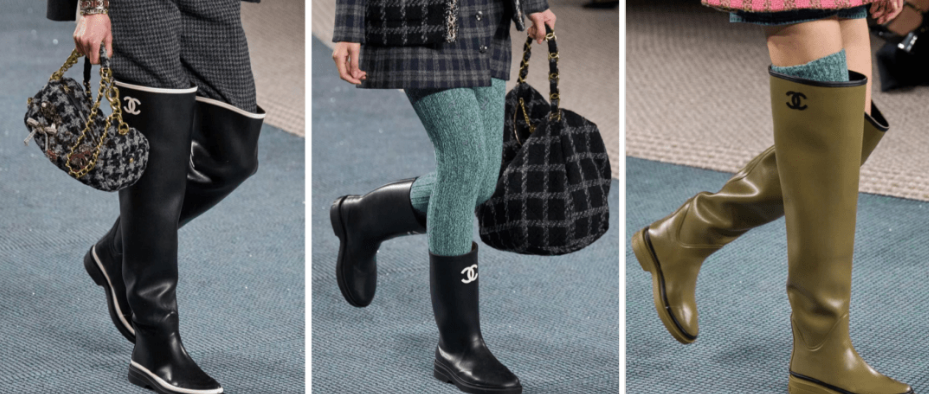Do Rubber Boots Protect Against Snake Bites?
When venturing into areas known for their snake populations, safety is a primary concern for outdoor enthusiasts, hikers, and workers in rural environments. One common question that arises is whether rubber boots can protect against snake bites. Understanding the anatomy of snake bites, the design of rubber boots, and some best practices for minimizing risk can help individuals make informed decisions about their footwear choices.
Understanding Snake Bites
To assess the effectiveness of rubber boots against snake bites, it’s important to understand how snake bites occur. Snakes typically strike by coiling their bodies and then using their fangs to deliver venom, which can vary in toxicity depending on the species. The likelihood of being bitten correlates with several factors, including the type of snake, the proximity to the snake, and the environment.
Most snake bites happen when a person accidentally steps on or gets too close to a snake, provoking a defensive strike. In such encounters, the lower extremities are often at the greatest risk, making protective footwear imperative. While snakes can bite through various materials, rubber boots have some inherent advantages.
Rubber Boots as Protective Footwear
Rubber boots, especially those designed for outdoor activities or agricultural use, offer several key benefits
1. Material Strength Quality rubber is thick and resilient, providing a solid barrier against punctures. Standard rubber boots may not guarantee complete protection, but they can significantly reduce the risk of puncture from less aggressive snakes.
2. Height Unlike regular shoes, rubber boots typically extend above the ankle. This additional height can provide some level of protection against snakes that may strike higher than the ground level.
3. Waterproofing Rubber boots are waterproof, which is advantageous in wet environments where snakes may thrive. Keeping feet dry is essential for comfort and health when spending extended periods outdoors.
However, it is important to note that not all rubber boots are created equal. Some may lack the thickness needed to prevent penetration by a snake's fangs. It is essential to look for boots specifically marketed as snake-proof or those designed for professional use where snake encounters are common.
Limitations of Rubber Boots
do rubber boots protect against snake bites

While rubber boots offer some protection, they are not foolproof. The effectiveness of rubber boots in preventing snake bites largely depends on the size and type of the snake. A bite from a larger snake, such as a rattlesnake or a cottonmouth, may still penetrate through thinner materials. Additionally, rubber boots do not cover the entire body, so areas like the legs and arms are still vulnerable.
Besides, it is crucial to remember that rubber boots might not be sufficient alone. Other protective gear, such as gaiters made from specialized materials, can complement rubber boots to provide additional coverage and reduce the risk further.
Best Practices for Snake Safety
To maximize safety while wearing rubber boots, consider the following best practices
1. Stay on Trails Avoid wandering off established paths where snakes are more likely to rest.
2. Be Aware of Your Surroundings Keep an eye out for snakes, especially in areas with tall grass, rocks, or debris where they may be concealed.
3. Use Caution When Moving Carefully assess your steps and avoid sudden movements that may startle a snake.
4. Choose the Right Footwear Invest in high-quality rubber boots with added protective features designed specifically for snake encounters.
5. Consider Training Educate yourself about local snake species and their behaviors. Knowing how to identify venomous snakes can enhance your ability to avoid them.
Conclusion
In summary, rubber boots can offer a degree of protection against snake bites, particularly when they are made from thick, durable materials and designed for outdoor use. However, they are not invincible. Being mindful of the environment and taking additional precautions are essential components of staying safe in snake-prone areas. Ultimately, a combination of protective footwear and situational awareness can significantly reduce the risk of snake bites while enjoying the great outdoors.
-
Stay Dry in Any Condition with WadersNewsJul.17,2025
-
Elite Performance with Camouflage Combat BootsNewsJul.17,2025
-
Dry and Comfortable with Green Rubber Garden ShoesNewsJul.17,2025
-
Convenient Protection with Foldable RainbootsNewsJul.17,2025
-
Comfort and Protection with Neoprene Work BootsNewsJul.17,2025
-
Brighten Rainy Days with Floral Rain BootsNewsJul.17,2025
-
Safety Wellies: The Ultimate Combination of Protection, Comfort, and VisibilityNewsJun.19,2025











